Increase Testosterone naturally and unlock peak performance in Dubai’s fitness scene. If you’re grinding it out in Dubai’s world-class gyms or pushing through those intense desert workouts, you know how crucial energy, strength, and recovery are to your gains. I’ve helped countless clients, from busy executives in Downtown Dubai to athletes prepping for marathons, optimize their hormones for peak performance. Let’s talk about testosterone: this powerhouse hormone isn’t just for building muscle; it supports everything from mood and libido to bone health and fat loss.
Check your testosterone levels. Every study on evolutionary psychology has correlated testosterone levels with dominance.
Mike Cernovich
In Dubai’s fast-paced fitness scene, where the heat keeps us indoors and lifestyles can throw off our natural rhythms, low testosterone is more common than you might think. It affects both men and women, influencing disease risk, sexual function, and even your ability to smash those PRs at places like Fitness First or Warehouse Gym. But the good news? You can boost it naturally without resorting to synthetic options. Drawing from the latest research (up to 2025), I’ll share 10 evidence-based strategies tailored to our UAE context. These aren’t quick fixes, they’re sustainable habits backed by science to help you feel stronger, sharper, and more vital. Let’s dive in and get your levels firing on all cylinders!
1. Increase Testosterone Naturally Through Strength & HIIT Workouts
That burn? It’s not just building muscle, it’s spiking your testosterone. Exercise is one of the top natural boosters, and resistance training shines here. A 2020 review showed short-term boosts from weightlifting, while HIIT can elevate levels even in older adults. Combining aerobic and strength work amps up production, per VA Whole Health studies.
As a trainer, I’ve seen clients gain 15-20% more strength by incorporating compound lifts like squats three times a week. Start with 45-minute sessions: warm up, hit big muscle groups, and cool down. HIIT? Try 20-second sprints on a treadmill followed by rest, perfect for busy schedules. Remember, overtraining can backfire, so listen to your body and recover smartly.
Pro Tip: Read The Holistic Approach to Building Muscle: Integrating Training, Nutrition, Recovery, and Mindset for a deeper dive into optimizing your workouts, nutrition, and recovery
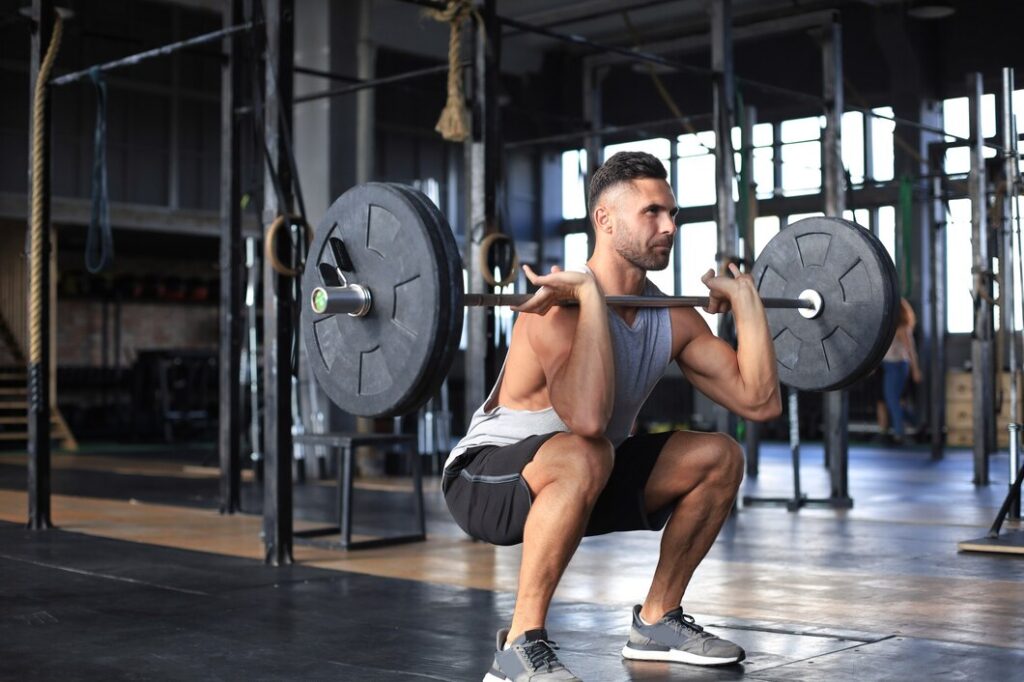
2. Balance Your Macros: Protein, Healthy Fats, and Carbs
What you fuel your body with matters big time in the hormone game. A well-rounded diet with protein, fats, and carbs supports testosterone synthesis. Low-fat diets can tank levels, while healthy fats provide the building blocks for hormones. Research from PMC highlights how manipulating intake directly impacts circulating testosterone.
In the UAE, grab local staples: Lean proteins from grilled chicken and fish (watch the portions), healthy fats from avocados or olive oil in Mediterranean salads available at Carrefour, and complex carbs from quinoa or sweet potatoes. Aim for 1.6-2.2g of protein per kg of body weight daily. I’ve had clients report better energy after ditching crash diets. Constant calorie deficits disrupt hormones, so focus on whole foods for steady gains.
Pro tip: Track your macros with apps like MyFitnessPal or try my Abooyeah Macro Calculator to keep your nutrition balanced without obsessing over every meal.
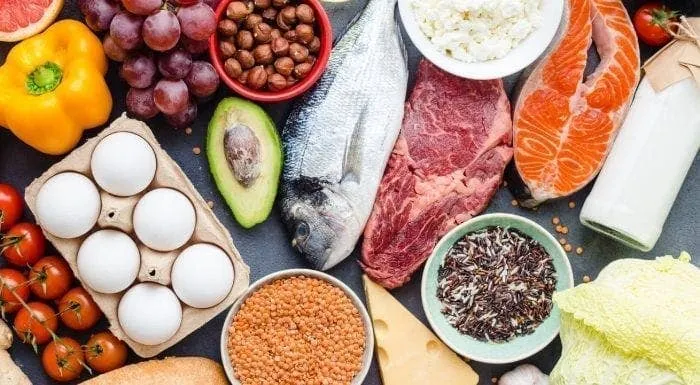
3. Manage Stress to Keep Cortisol in Check
Dubai life is exhilarating, think high-stakes meetings in DIFC followed by beach volleyball or late-night workouts on the Marina – but chronic stress? It’s one of testosterone’s biggest enemies. Elevated cortisol, the body’s primary stress hormone, has been shown to suppress testosterone production by disrupting the hypothalamic-pituitary-gonadal (HPG) axis (Tilbrook et al., 2000). Research published in the Journal of Clinical Endocrinology & Metabolism found that men with persistently high cortisol levels tend to experience lower serum testosterone, reduced muscle mass, and increased fat accumulation (Cumming et al., 1983). Chronic stress not only affects hormone balance but also impairs recovery and sleep quality, two essential factors for maintaining optimal testosterone levels (Leproult & Van Cauter, 2011). Fortunately, studies show that managing stress through physical activity, mindfulness, and adequate rest can effectively restore hormonal balance and improve overall well-being (Chrousos, 2009).
As someone who’s coached countless high-performing professionals in Dubai, I’ve seen firsthand how lifestyle stress impacts physical progress and energy. I often recommend mindfulness apps such as Calm or Headspace, or attending yoga sessions at studios like Yoga House in JLT, which research shows can reduce cortisol and elevate mood (Ross & Thomas, 2010). Evening walks in Safa Park or along Jumeirah Beach are not only relaxing but also act as low-intensity cardio, known to support hormonal balance (Hackney, 2001). Incorporate deep breathing, journaling, or guided meditation before bed, and prioritize 7–9 hours of sleep (More on this on step 6.). Testosterone production occurs primarily during REM cycles (Andersen & Tufik, 2008). If work stress becomes overwhelming, professional coaching or therapy can help improve stress resilience and cognitive control. Lowering stress isn’t just about mental clarity, it’s scientifically proven to enhance testosterone, recovery, and overall performance.
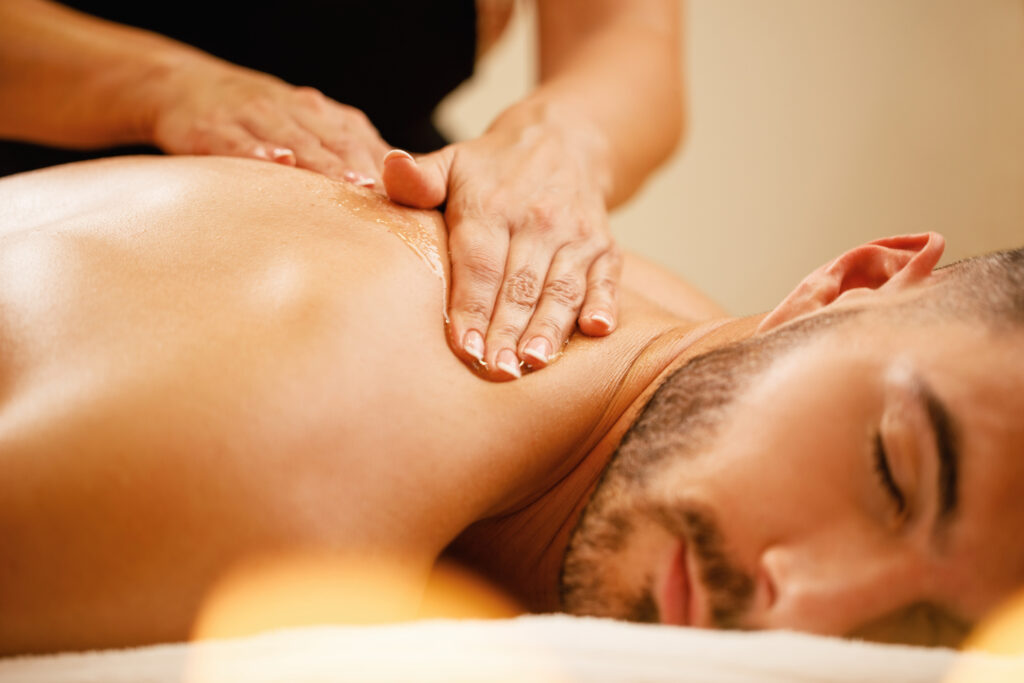
4. Optimize Vitamin D Levels Despite Dubai’s Heat
You’d think with our endless sunshine, vitamin D deficiency wouldn’t be an issue in Dubai, right? Wrong: up to 90% of UAE residents are deficient due to indoor lifestyles, sunscreen, and heat driving us inside. Low vitamin D links to reduced testosterone, but supplementation can increase levels by 20% in studies.
Combat this by getting 15-20 minutes of morning sun exposure (before 10 AM to avoid peak heat) on arms and legs, perfect during winter months at Jumeirah Beach. Foods like fatty fish from Lulu Hypermarket or fortified dairy help too. I advise clients to test levels via bloodwork at Cleveland Clinic Abu Dhabi and supplement with 2000-4000 IU D3 if needed, under doctor guidance. This tweak alone has helped many feel more energized for workouts..
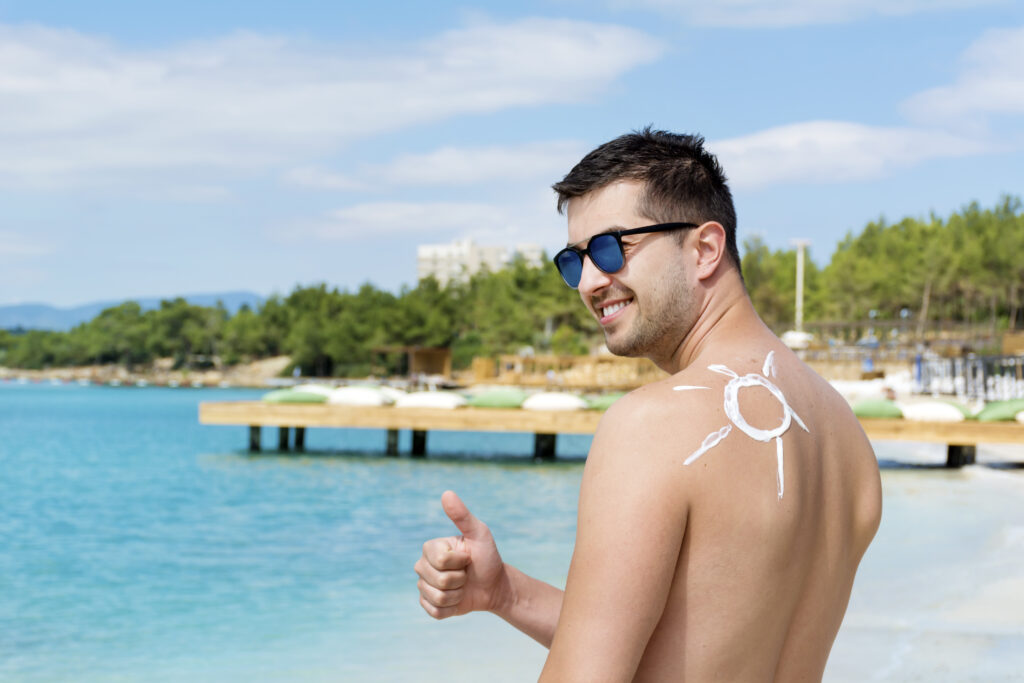
5. Consider Evidence-Backed Supplements
Supplements aren’t magic, but the right ones can effectively fill nutritional gaps that impact testosterone balance and performance. Research indicates that zinc deficiency is strongly associated with reduced testosterone production, and supplementation can restore normal levels, particularly in men with low zinc intake (Prasad et al., 1996; Wessells & Brown, 2012). Similarly, magnesium has been shown to improve both free and total testosterone, especially when combined with resistance training (Cinar et al., 2011). Vitamin D, often deficient due to limited sun exposure during Dubai’s hot months, is another critical nutrient linked to healthy testosterone regulation (Pilz et al., 2011).
Herbal compounds like fenugreek and ashwagandha have also gained strong scientific support. Fenugreek extract has been shown in randomized trials to enhance testosterone levels and strength performance (Wilborn et al., 2010), while ashwagandha supplementation has been found to reduce cortisol and improve testosterone concentrations, promoting both hormonal balance and stress resilience (Lopresti et al., 2019).
In Dubai’s supplement scene — with reliable outlets such as Holland & Barrett or Life Pharmacy, a practical starting stack includes zinc (15–30 mg daily) if your diet lacks oysters, nuts, or seeds. Adding ashwagandha root extract (300–600 mg daily) can offer a dual benefit of stress reduction and hormonal support. Always consult a healthcare professional before starting any supplement, especially if you’re taking medications. From my experience working with clients, pairing these supplements with a nutrient-dense diet and consistent training yields measurable improvements in energy, libido, and overall strength, without over-reliance on pills or shortcuts.
Beyond these foundational nutrients, several other science-backed supplements can support natural testosterone production and overall hormonal balance. While not every option works for everyone, studies suggest the following compounds can enhance testosterone levels, improve fertility, and support energy metabolism when combined with proper training, nutrition, and recovery:
- D-Aspartic Acid (DAA): An amino acid that plays a key role in hormone regulation by stimulating the release of luteinizing hormone (LH), which signals the testes to produce testosterone. Research shows it can temporarily increase testosterone in men with low baseline levels.
- Boron: This trace mineral has been found to increase free testosterone and reduce estrogen levels by affecting sex hormone-binding globulin (SHBG). Even small doses (6–10 mg/day) may yield measurable benefits.
- Tongkat Ali (Eurycoma longifolia): Known as Malaysian ginseng, this herbal extract has been shown to boost testosterone, reduce cortisol, and improve mood and libido — especially in men under stress or experiencing age-related declines.
- Tribulus Terrestris: While results are mixed, some studies suggest this traditional herb can enhance libido and potentially raise testosterone in men with lower baseline levels. It’s often used in combination with other natural boosters.
- Omega-3 Fatty Acids (Fish Oil): Omega-3s support hormonal function, reduce inflammation, and improve the cell membrane health essential for testosterone synthesis — particularly beneficial for men with high stress or poor dietary fat intake.
These supplements aren’t replacements for consistent training, balanced nutrition, and restorative sleep — they’re enhancers that fill physiological gaps. When used strategically, they can help optimize your hormonal environment for better energy, recovery, and muscle development, especially for active men in demanding urban lifestyles like Dubai.
6. Aim for Quality Sleep Every Night
Skimping on sleep is like hitting the mute button on your testosterone. A 2019 study linked poor sleep to 10-15% drops in levels among young men. Quality rest is as vital as diet for hormone health.
Sleep is not an optional lifestyle luxury. Sleep is a non-negotiable biological necessity.
Mathew Walker
With Dubai’s nightlife tempting late nights, set a routine: Wind down by 10 PM, avoid screens, and keep your room cool (AC is our friend here). Aim for 7-9 hours, I’ve seen clients transform their recovery by using blackout curtains against city lights. Naps? Keep them short. Prioritize this, and watch your morning workouts feel effortless.
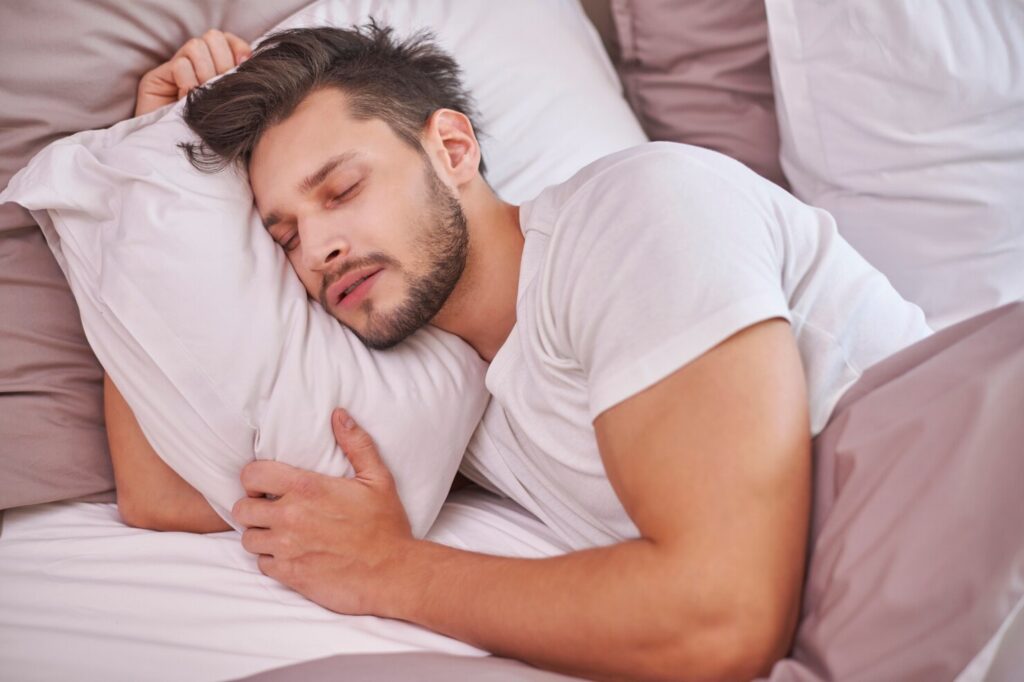
7. Reduce Exposure to Hormone-Disrupting Chemicals
Everyday chemicals like BPA in plastics mimic estrogen, potentially lowering testosterone. High exposure disrupts hormone balance, per research.
In the UAE, switch to glass or stainless steel for water bottles, easy at malls like Dubai Mall. Avoid microwaving plastics and choose paraben-free grooming products from Sephora. As a trainer, I tell clients to audit their routines: Opt for natural cleaners and fresh foods over packaged. Small swaps add up to big hormonal wins.
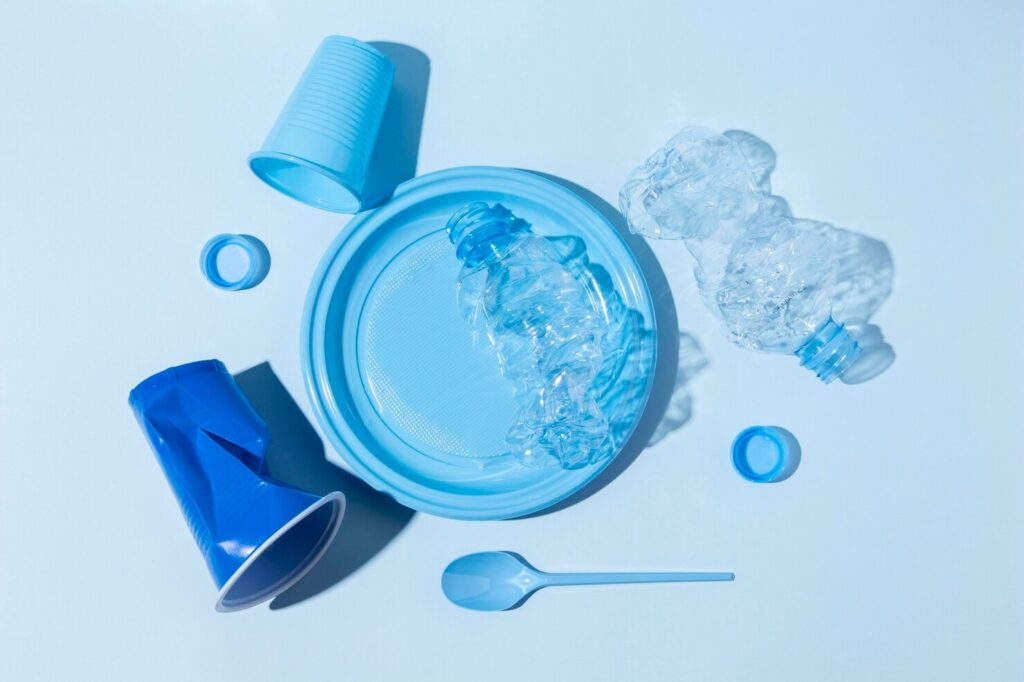
8. Limit Alcohol Consumption
Booze and testosterone don’t mix well, excessive intake can drop levels quickly, leading to reduced function. Studies show heavy use causes atrophy and dependence risks.
Enjoy Dubai’s social scene moderately: Stick to 1-2 drinks occasionally, hydrate well, and choose lighter options. Alternate with mocktails at brunches. If you’re serious about fitness, track how alcohol affects your energy, many clients report better gains after cutting back.
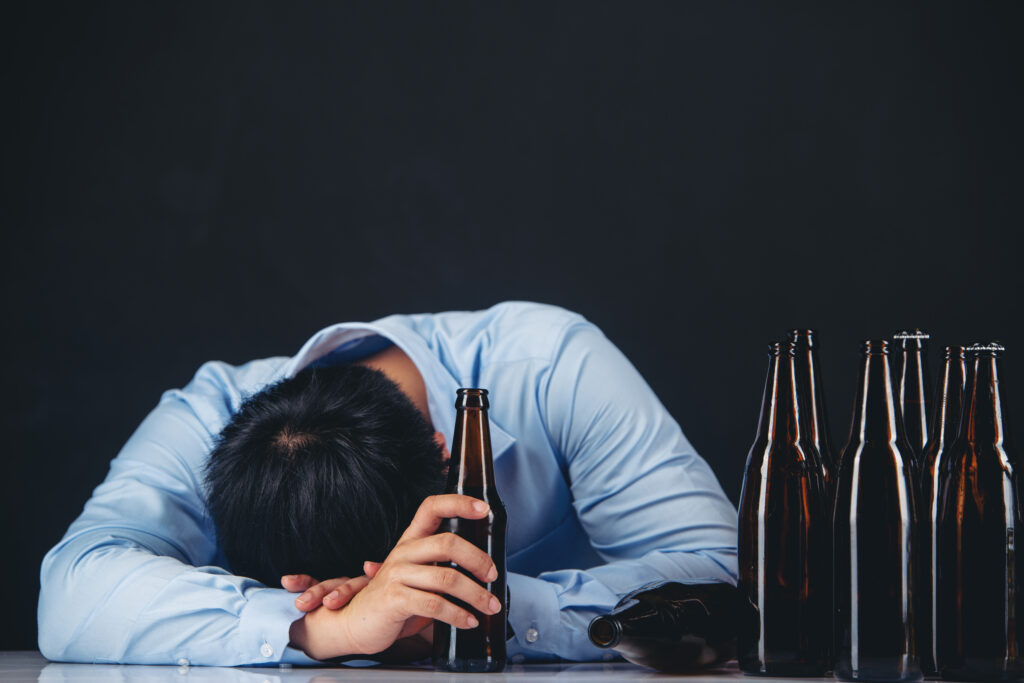
9. Maintain a Healthy Body Weight Through Sustainable Habits
Carrying extra weight, especially around the middle, suppresses testosterone by converting it to estrogen. Losing fat can boost levels by up to 30%, according to Harvard and Utah research.
In Dubai’s foodie culture, focus on sustainable deficits: Track calories via apps, incorporate walks in cooler areas like Dubai Marina, and strength train to preserve muscle. I’ve guided clients to drop 5-10kg gradually, seeing testosterone rebounds via follow-up tests. No extremes, aim for 0.5-1kg loss weekly with balanced meals.
10. Incorporate Testosterone-Supporting Foods and Herbs
Certain foods naturally encourage testosterone production. Oysters (zinc-rich), leafy greens, fatty fish, and olive oil top the list, per MedicalNewsToday. Herbs like ginger add flavor and benefits.
Stock up at UAE markets: Salmon from Spinneys for omega-3s, spinach in salads, and ginger tea post-workout. Fenugreek in curries boosts too. Experiment in your kitchen, my clients love adding these for taste and T-support without boredom.
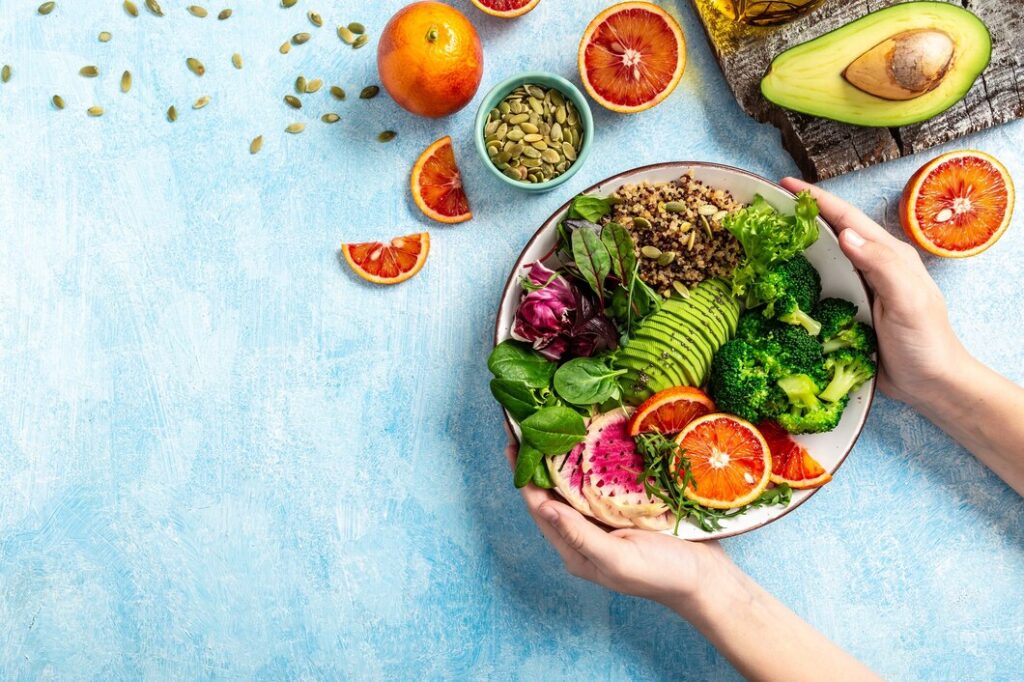
Wrapping It Up: Your Path to Natural Testosterone Optimization
There you have it: 10 proven, natural ways to boost your testosterone and thrive in Dubai’s fitness scene. From strength training to soaking up the sun safely, each habit builds on the next for sustainable, long-term results. As a seasoned trainer, I’ve seen incredible transformations firsthand: more energy during long workdays, better muscle definition, sharper focus, and improved overall well-being.
Remember, everyone’s body responds differently. It’s smart to get your bloodwork done at local clinics like GluCare.Health and consult a healthcare professional before making major changes. Prioritize consistency over perfection, and stay connected with Dubai’s fitness community for motivation and accountability.
Ready to level up? Start with one tip today. However, boosting testosterone is just one piece of the male vitality puzzle. To understand how hormones, muscle mass, and longevity work together as a complete system, read my definitive guide on 7 Proven Men’s Health Strategies to Hack Your Hormones.
How quickly can I see results from these methods?
Typically 4-8 weeks with consistent effort, but get tested for baselines.
Is testosterone boosting safe for women in Dubai?
Yes, in moderation—it supports health without masculinizing effects when natural.
What if I suspect low testosterone?
Consult a specialist; TRT is an option if natural ways fall short, per Zone Health guidelines.
Can Dubai’s heat affect my testosterone?
Indirectly via vitamin D and stress—stay hydrated and train smart.
Are there local supplements for this?
Yes, but choose reputable brands and verify with a professional.
References:
Cinar, V., Polat, Y., Baltaci, A. K., & Mogulkoc, R. (2011). Effects of magnesium supplementation on testosterone levels of athletes and sedentary subjects at rest and after exhaustion. Biological Trace Element Research, 140(1), 18–23.
Lopresti, A. L., Smith, S. J., Malvi, H., & Kodgule, R. (2019). An investigation into the stress-relieving and pharmacological actions of an ashwagandha extract: A randomized, double-blind, placebo-controlled study. Medicine, 98(37), e17186.
Pilz, S., Frisch, S., Koertke, H., et al. (2011). Effect of vitamin D supplementation on testosterone levels in men. Hormone and Metabolic Research, 43(3), 223–225.
Prasad, A. S., Mantzoros, C. S., Beck, F. W., Hess, J. W., & Brewer, G. J. (1996). Zinc status and serum testosterone levels of healthy adults. Nutrition, 12(5), 344–348.
Wessells, K. R., & Brown, K. H. (2012). Estimating the global prevalence of zinc deficiency: Results based on zinc availability in national food supplies and the prevalence of stunting. PLoS ONE, 7(11), e50568.
Wilborn, C. D., Taylor, L. W., Campbell, B. I., et al. (2010). Effects of a purported aromatase and 5α-reductase inhibitor on hormone profiles in college-age men. International Journal of Sport Nutrition and Exercise Metabolism, 20(6), 457–465.








